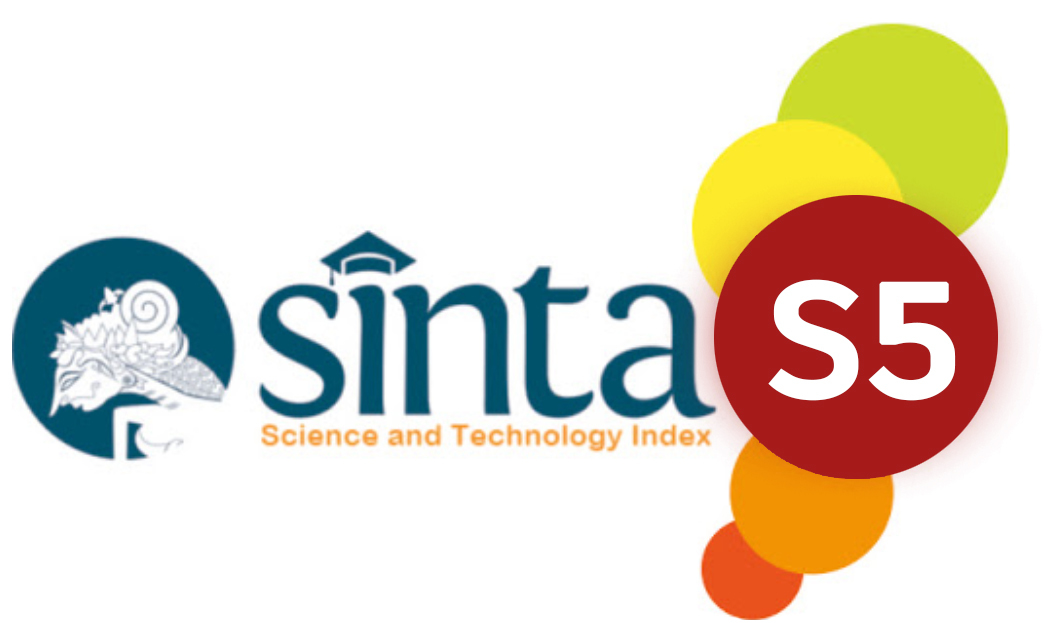PENGARUH FAKTOR MAKROEKONOMI TERHADAP FINANCIAL DEEPENING DI INDONESIA
Abstract
The research background is the issue of research on the condition of financial deepening in Indonesia in 2013-2019 with the aim of describing the macroeconomic conditions of financial deepening in Indonesia for the period 2013-2019, using the variables foreign investment, trade openness, exchange rates, and inflation. The method used in this research is quantitative descriptive by analyzing secondary data which is processed using Eviews with the OLS method. The results of data processing using OLS show several findings, namely: foreign investment, exchange rates, and inflation variables have an effect on financial deepening and trade openness has no effect on financial deepening. Meanwhile, based on simultaneous testing, it shows that all macroeconomic variables have an effect on financial deepening in the 2013-2019 period. The implication of this research is that the government can maintain stable macroeconomic conditions and provide positive benefits for Indonesia's financial deepening.
Keywords
References
Aam, Slamet Rusydiana. “Telaah Pemikiran Ekonomi Maqrizi Tentang Inflasi.†Jurnal KORDINAT 11, no. 1 (2009).
Anwar, M. Muhlis. “Pengaruh Islamic Financial Deepening Terhadap Pertumbuhan Ekonomi Indonesia.†UIN Sunan Kalijaga, 2019.
Aulia, Muhammad, and Raja Masbar. “Analisis Efektifitas Penggunaan Cadangan Devisa Dan Financial Deepening Terhadap Stabilitas Nilai Tukar.†Jurnal Ekonomi dan Kebijakan Publik Indonesia 3, no. 2 (2016): 78–92.
Awaluddin. “Inflasi Dalam Prespektif Islam (Analisis Terhadap Pemikiran Al-Maqrizi).†Jurnal Ilmiah Syari‘ah 16, no. 2 (2017).
Beik, Irfan Syauqi, and Laily Dwi Arsyianti. Ekonomi Pembangunan Syariah. Revisi. Depok: Raja Grafindo Persada, 2016.
Best, Alton, Brian M. Francis, and C. Justin Robinson. “Financial Deepening and Economic Growth in Jamaica.†Global Business Review 18, no. 1 (2017): 1–18.
Boediono. Pengantar Ilmu Ekonomi No. 3 Ekonomi Internasional. Yogyakarta: BPFE, 2014.
Caves, Richard Earl. “International Corporations: The Industrial Economics of Foreign Investment.†Economica 38, no. 1–27 (1971).
Dunning, John Harry. Multinational Enterprises and the Global Economy. Workingham: Addision-Wesley, 1993.
Ekberg, Jason, Reet Chowdhuri, Soejachmoen Moekti, and Booby Hermanus. “Financial Deepening in Indonesia.†Mandiri Institute (2015): 52.
Ichvani, Lutfiana Fiqry, and Hadi Sasana. “Pengaruh Korupsi, Konsumsi, Pengeluaran Pemerintah Dan Keterbukaan Perdagangan Terhadap Pertumbuhan Ekonomi Di Asean 5.†Jurnal REP (Riset Ekonomi Pembangunan) 4, no. 1 (2019): 61–72.
Karim, Adiwarman Azwar. Ekonomi Makro Islam. Jakarta: Raja Grafindo Pustaka, 2015.
King, Robert G, and Ross Levine. “Finance and Growth: Schumpeter Might Be Right.†The Quarterly Journal of Economics 108, no. 3 (1993): 717–737.
Latifah, Ami. “Pengaruh Sektor Perbankan Syariah Terhadap Financial Deepening Di Indonesia.†Jurnal Ekonomi Islam 7, no. 2 (2016): 107–130.
Lynch, David. “Measuring Financial Sector Development: A Study of Selected Asiaâ€Pacific Countries.†The Developing Economies 34, no. 1 (1996): 1–27.
Mankiw, N. Gregory. Principles of Economics Pengantar Ekonomi Makro. Edisi Keti. Jakarta: Salemba Empat, 2010.
McKinnon, and Shaw. “Money and Capital in Economic Development.†Brookings Institution Washington (1993).
Mishkin, Frederic S. “The Economics of Money, Banking and Financial Markets.†Mishkin Frederic–Addison Wesley Longman (2010).
Munir, K, and M Sultan. “Macroeconomic Determinants of Income Inequality and Poverty: Some International Evidence.†IMF Working Paper 4, no. 614 (2017): 1–28.
Mushtaq, Saba. “Causality between Bank’s Major Activities and Economic Growth: Evidences from Pakistan.†Financial Innovation 2, no. 1 (2016). http://dx.doi.org/10.1186/s40854-016-0024-y.
Nowbutsing, B.M. “The Impact of Openness on Economic Growth: Case of Indian Ocean Rim Countries.†Journal of Economics and Development Studies 2, no. 2 (2014): 407–427.
Ogbuagu, Anuli Regina, Dennis Brown Ewubare, and Port Harcourt. “Financial Deepening and Inflation in Nigeria : An Open Economy Model Approach.†Journal of Economics and Sustainable Development 5, no. 25 (2014): 39–50.
Panjawa, Jihad Lukis, and Ira Fitriani Widianingrum. “Hubungan Financial Deepening Dan Pertumbuhan Ekonomi: Studi Empiris Di Indonesia.†Jurnal Penelitian 12, no. 1 (2018): 45.
Putri, Novarinda Vanny Kusuma, and Muhammad Khoirul Mubin. “Financial Deepening Relationship With Economic Growth in Indonesia.†Jurnal Ilmu Ekonomi Terapan 6, no. 1 (2021): 133.
Ruslan, Dede. “Analisis Financial Deepening Di Indonesia.†Journal of Indonesian Applied Economics (2011): 183–204.
Sackey, Frank. “Financial Sector Deepening and Economic Growth in Ghana.†Journal of Economics and Sustainable Development 3, no. 8 (2018): 122–140.
Sekaran, Uma. Metode Penelitian Untuk Bisnis. Kedua. Jakarta: Salemba Empat, 2019.
Sekaran, Uma, and Roger Bougie. Metode Penelitian Untuk Bisnis Buku 2. 6th ed. Jakarta: Salemba Empat, 2019.
Sugiyono. Metode Penelitian Kuantitatif, Kualitatif Dan R&D. Bandung: Alfabeta, 2019.
Sukirno, Sadono. Makroekonomi: Teori Pengantar. Jakarta: Raja Grafindo Pustaka, 2010.
Syaparuddin, Etik Umiyati, and Jaya Kusuma. “Pengaruh Hutang Luar Negeri Terhadap Pertumbuhan Ekonomi Indonesia, Thailand, Malaysia, Fhilipina, Vietnam Dan Burma Periode 1990-2013.†Jurnal Paradigma Ekonomika 10, no. 01 (2015): 206–220.
Tamimah, Tamimah, Sri Herianingrum, and Nur Rachmat Arifin. “Determinan Pertumbuhan Ekonomi Negara OKI.†Jurnal Iqtisaduna 5, no. 2 (2019): 153.
Todaro, Michael, and Stephen Smith. Pembangunan Ekonomi Di Dunia Ketiga. Eleventh. New York: Addison-Wesley, 2011.
Wasiaturrahma, Ramses Muhammad Rizal, and Shochrul Rohmatul Ajija. “Financial Deepening and Economic Growth in Indonesia.†Media Trend 14, no. 1 (2019): 24–32.
Widarjono, Agus. Ekonometrika Pengantar Dan Aplikasi Disertai Panduan Eviews. Yogyakarta: UPP STIM YKPN., 2018.
DOI: 10.28944/masyrif.v4i1.1012
Refbacks
- There are currently no refbacks.



